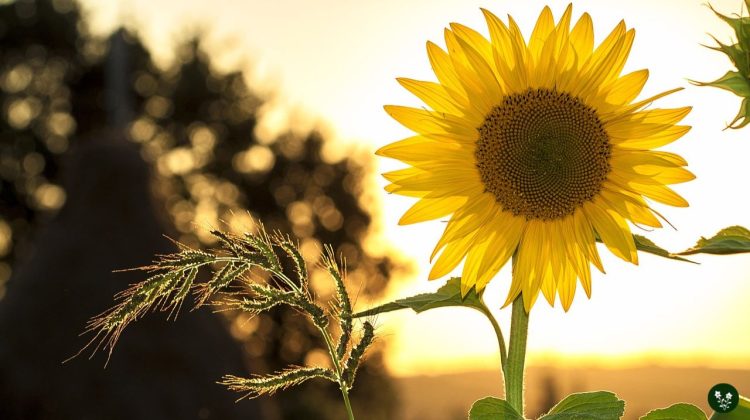
Sunflowers are more than just cheerful, bright blooms; they carry deep meanings and symbolism across different cultures.
Known for their awe-inspiring beauty and towering height, sunflowers have been important in history, representing positivity, strength, admiral and loyalty.
The sunflower’s strong association with unwavering faith and unconditional love makes it an ideal flower to share with loved ones.
Stemming from the myth of Clytie and Apollo, the sunflower’s symbolism of adoration and loyalty further solidifies its status as a cherished and meaningful floral choice for various occasions.
In this article, we'll cover
1. Sunflower Symbolism
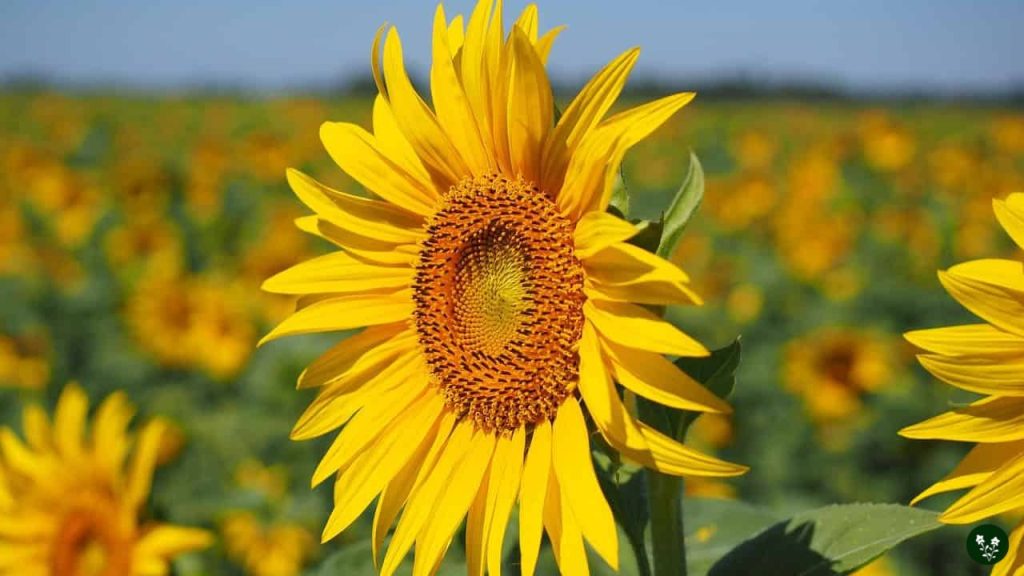
Historical Significance
Sunflowers have a long history of being associated with the sun due to their bright yellow petals and natural tendency to follow the sun’s movement throughout the day.
They have often symbolized happiness, joy, and life force.
In ancient Greek mythology, the sunflower was associated with the story of Clytie, a nymph who transformed into a sunflower after her unrequited love for the sun god Helios.
This myth further strengthened the connection between sunflowers and the sun, symbolizing their devotion and adoration.
Spiritual Interpretations
In various spiritual beliefs, sunflowers hold different meanings. They are seen as symbols of happiness, strength, and loyalty.
Their connection to the sun makes them a representation of life, growth, and inner light. Sunflowers are often given as a token of support to those going through difficult times, representing hope and positivity.
In Christianity, sunflowers symbolize unwavering faith and spiritual devotion to God as they follow the sun’s path.
Their vibrant colors and sturdy nature convey a message of resilience and steadfastness in the face of adversity.
Cultural Meanings
In Chinese culture, sunflowers are believed to bring vitality and longevity, and they are often considered signs of good fortune when embarking on new ventures or careers.
The flower is also associated with peace and hope.
Similarly, many Native American tribes considered sunflowers representations of warmth, fertility, and life-sustaining harvests.
Their seeds were consumed for nutritional value, while the flowers were used for dyeing and decorating pottery.
Today, sunflowers continue to be an iconic symbol of happiness, optimism, and resilience, reminding us of the sun’s power and its life-giving energy.
2. Sunflower Colors and Their Meanings
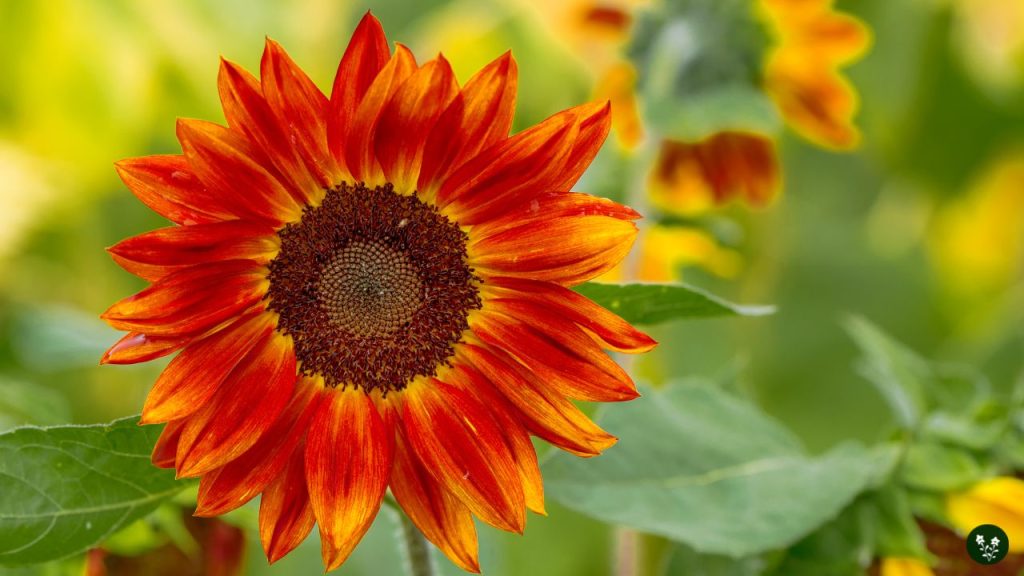
Sunflowers are widely recognized for their vibrant and lively colors. These bright colors significantly contribute to their meanings, symbolism and representation in various cultures.
Yellow Sunflowers
Yellow sunflowers are the most common and popular type of sunflowers. Their bright yellow petals resemble the sun, symbolizing happiness and joy.
In some cultures, like China, they are viewed as a sign of vitality and longevity. Yellow sunflowers also embody honesty, admiration, and devotion.
Orange Sunflowers
Orange sunflowers, with their vibrant shades, represent strength and positivity. These colors are linked to feelings of warmth, energy, and enthusiasm.
Orange sunflowers are often associated with good fortune, especially when starting a new venture or career.
The orange hue adds a layer of connection to confidence and boldness, making them perfect for conveying encouragement and motivation.
Red Sunflowers
Red sunflowers are less common than their yellow and orange counterparts, but they carry a unique significance. Their bold red color symbolizes love, passion, and deep emotions.
These sunflowers are also known for representing warmth and strong, positive energy, just like the orange and red variations.
Red sunflowers can be a beautiful and meaningful choice for expressing your feelings toward someone special.
3. Sunflower Uses in Various Traditions
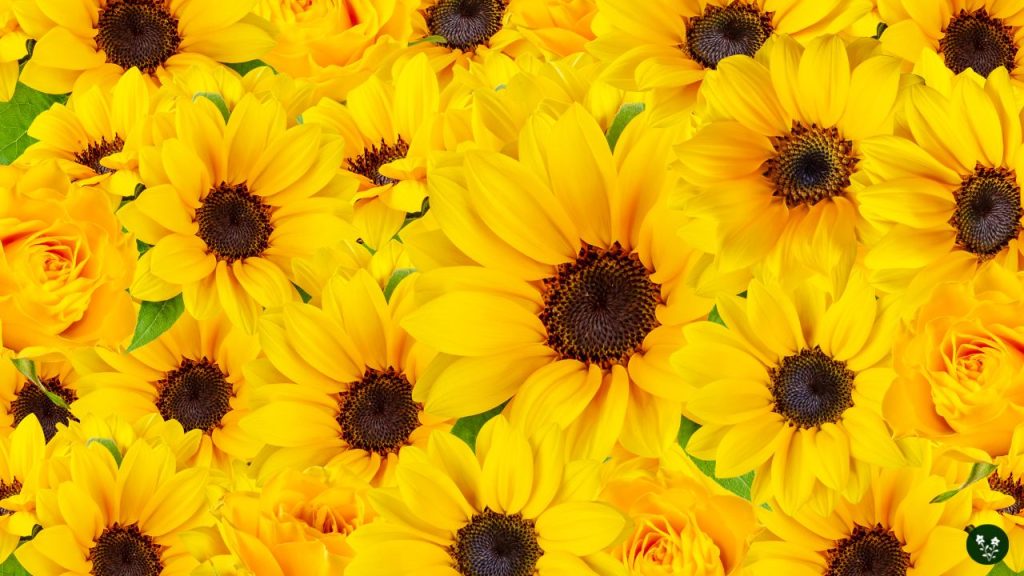
Sunflower in Native American Culture
In Native American tribes, sunflowers have held great significance as they represented harvest, bounty, and provision. Sunflowers gave them valuable resources such as seeds and bright pigments.
Sunflowers were also a symbol of growth, fertility, and abundance, and these tribes often incorporated the sunflower into their religious and cultural ceremonies.
Sunflowers in Art and Literature
Sunflowers have long been a popular subject in art and literature. One of the most famous examples is Vincent van Gogh’s series of paintings, “Sunflowers,” which beautifully captured the sunflower’s vibrant color and unique structure.
These paintings have become iconic images in the art world, symbolizing happiness, warmth, and creativity.
In literature, sunflowers have often represented positive themes such as love, friendship, and the pursuit of spiritual knowledge.
Writers like William Blake and Alan Ginsberg used sunflowers in their poems to evoke these sentiments, making the sunflower a strong literary motif.
In both art and literature, sunflowers continue to be a source of inspiration for their symbolism, beauty, and resilience. Their uplifting and positive connotations make them a beloved subject across various artistic disciplines.
4. Sunflowers in Everyday Life
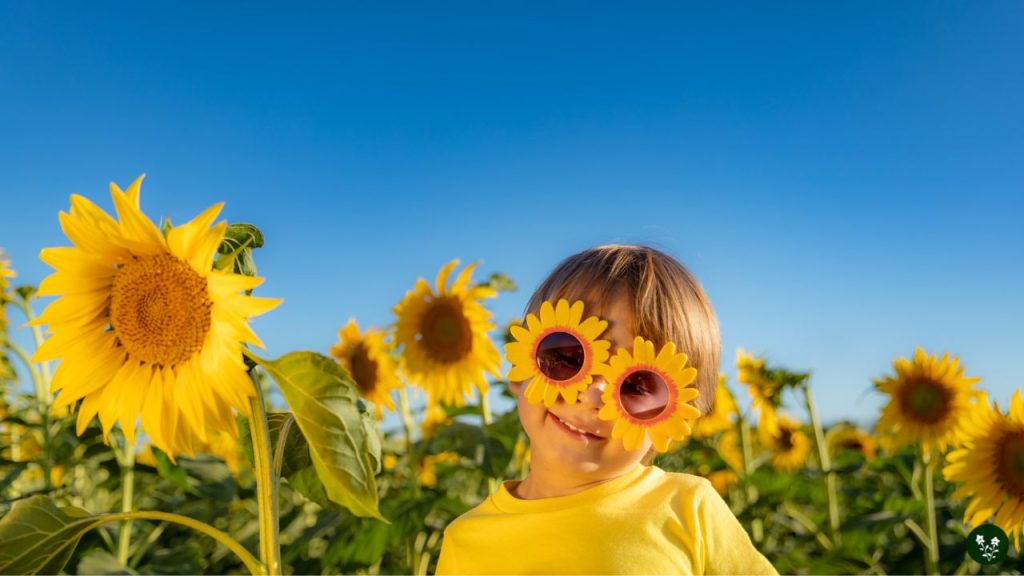
Sunflowers, with their bright and cheerful demeanor, can be found in our everyday lives. From gardening to gifting, and even as part of special events, these blossoms symbolize positivity and happiness.
Sunflower in Gardening
Many people choose to include sunflowers in their gardens due to their vibrant colors and ability to attract pollinators. Not only do they add a pop of color, but they also symbolize longevity, good fortune, and vitality.
In addition, sunflowers are relatively easy to grow, making them an ideal choice for amateur and seasoned gardeners.
Sunflower Gifts and Decorations
Sunflowers are popular choices for gifts, as they convey feelings of adoration, loyalty, and spiritual love.
They are often used in home decorations, such as wall art, throw pillows, and kitchenware, to bring a sense of warmth and cheerfulness.
In many cultures, they symbolize good luck and positivity, making them a fitting addition to any living space.
Sunflowers in Weddings and Events
These bright and sunny flowers can often be found at weddings and other special events, serving as stunning decorations and centerpieces.
Sunflowers are particularly popular for outdoor celebrations due to their natural, rustic charm. Owing to their symbolism of happiness, vitality, and longevity, they can make a meaningful addition to any memorable occasion.
Conclusion
In summary, sunflowers carry a variety of meanings and symbolism across different cultures and traditions. Known for their radiant beauty and ability to follow the sun across the sky, sunflowers symbolize hope, happiness, and adoration.
One popular association of sunflowers is their connection to William Blake’s poem “Ah, Sunflower”, in which the sunflower represents a human’s longing for a higher spiritual realm.
Additionally, sunflowers are also popularly used during graduation ceremonies symbolizing a new beginning, growth, and a bright future.
The origin and symbolism of the sunflower make it more than just a beautiful flower. Its ability to bring warmth, happiness, and inspiration to people invites us all to embrace the positive energy of the sunflower.
Explore the beauty and symbolism of flowers:
Leave a Reply